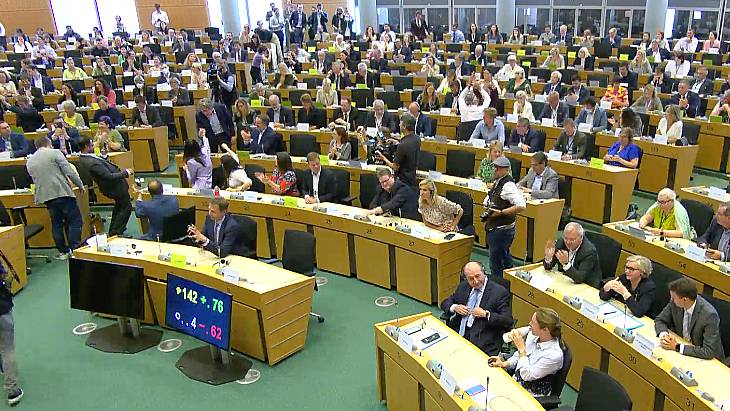The European Parliament's Economic and Monetary Affairs Committee and the Environment, Public Health and Food Safety Committee members voted by 76 to 62, with four abstentions and six who did not vote.
The European Commission's Taxonomy Complementary Climate Delegated Act on climate change mitigation and adaptation covering certain gas and nuclear activities was introduced in March and is due to come into force on 1 January 2023, unless a majority of the 705 members of the European Parliament formally vote against it.
That vote is to be held during the week beginning 4 July.
The background
The European Union aims to be climate neutral by 2050. To help that process it has come up with a system to "facilitate sustainable investment". The Taxonomy Regulation provides investors with guidance on economic activities that can be considered environmentally sustainable. It also obliges European companies to report their level of taxonomy-aligned undertakings. Any activity excluded from the list faces being cut out of sustainable finance products and will find itself at odds with long-term EU policy objectives.
There has been a split within the European Union over whether or not nuclear power - and natural gas - should be included as being "sustainable". Nuclear energy was left out of the initial Delegated Act pending further assessment. But this further assessment by the EU Joint Research Centre, reviewed by two further expert bodies, concluded that the technology is sustainable. As a result, the Commission has now taken steps to include nuclear energy as a transitional activity in the taxonomy by adopting a Complementary Delegated Act (CDA).
Supporters of nuclear power, including 12 EU member states who publicly backed its inclusion, say that nuclear is a low-carbon power source that must be part of any energy mix to tackle climate change, and does not cause more significant harm than other industries included in the taxonomy. They say that the science, and evidence-based policy support its inclusion. Opponents say that it should not be included because radioactive waste means it is not sustainable. For the European Union it has been one of the highest profile recent issues where France - which backs nuclear - is on the opposite side to Germany.
An economic activity must substantially contribute to at least one of six environmental objectives without causing significant harm to the others, for it to meet the EU's criteria for inclusion:
- Climate change mitigation
- Climate change adaptation
- Sustainable use and protection of water and marine resources
- Pollution prevention and control
- Protection of healthy ecosystems
- The transition to a circular economy
The European Commission has included certain nuclear and gas activities in the "transitional" category of activities - ones that "cannot yet be replaced by technologically and economically feasible low-carbon alternatives, but do contribute to climate change mitigation and with the potential to play a major role in the transition to a climate-neutral economy, in line with EU climate goals and commitments, and subject to strict conditions, without crowding out investment in renewables."
The nuclear sector welcomed its inclusion, although with some concerns about conditions attached, as well as its 'transitionary' status. Yves Desbazeille, director general of European nuclear trade body Nucleareurope (formerly Foratom), welcomed the CDA at the time it was agreed earlier this year, saying "we firmly believe that it contributes to climate mitigation objectives and does not cause more harm than any other power-producing technology already considered as taxonomy compliant".
Sama Bilbao y León, director general of the World Nuclear Association, said: "The European Parliament must act pragmatically at its plenary session next month and include nuclear in the EU taxonomy to support energy sustainability, affordability, and security. Denying affordable finance to nuclear would result in higher energy bills for all Europeans."















